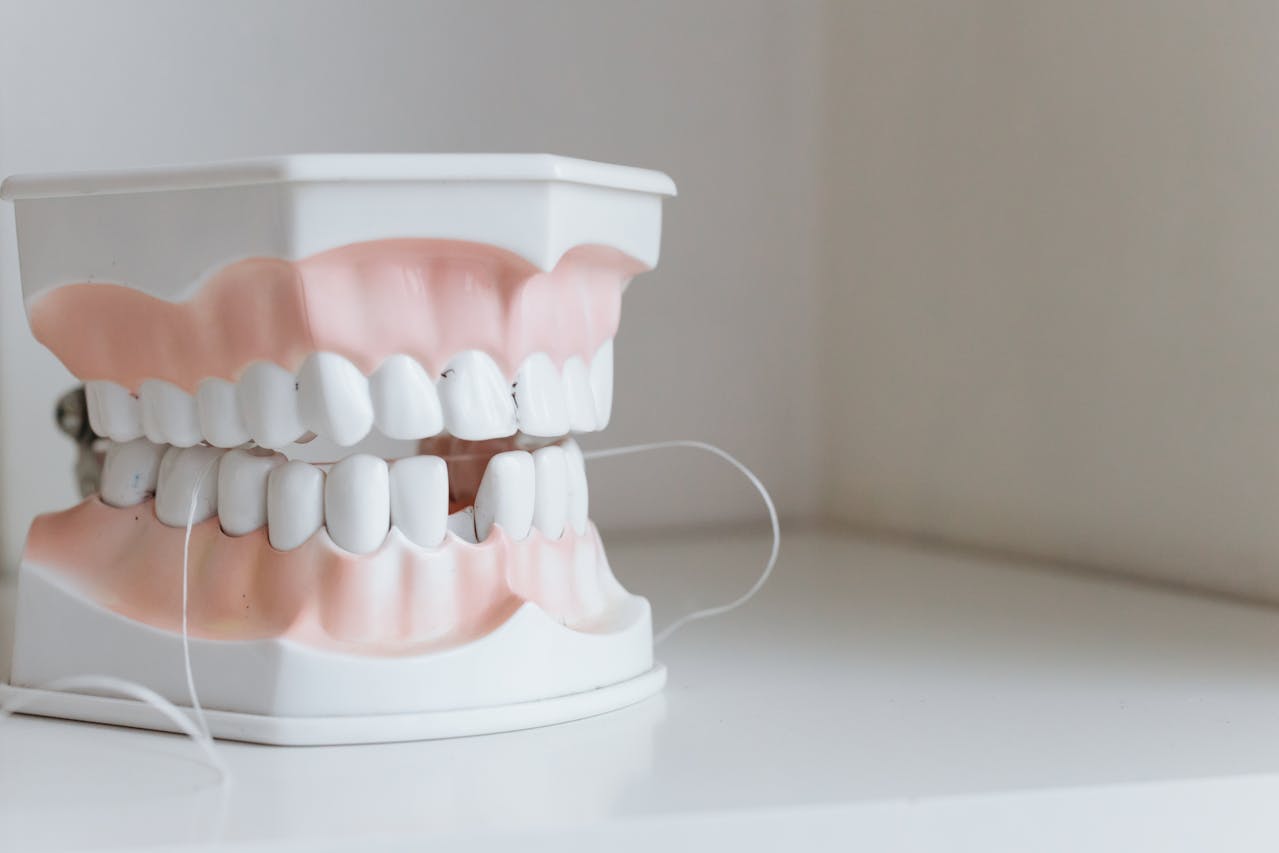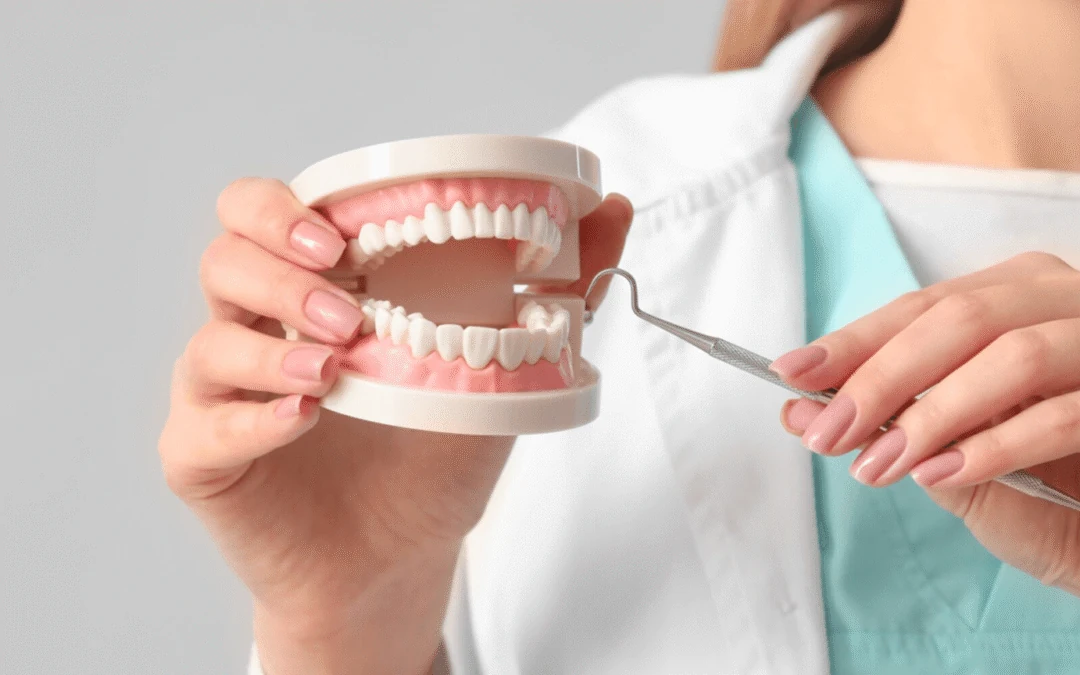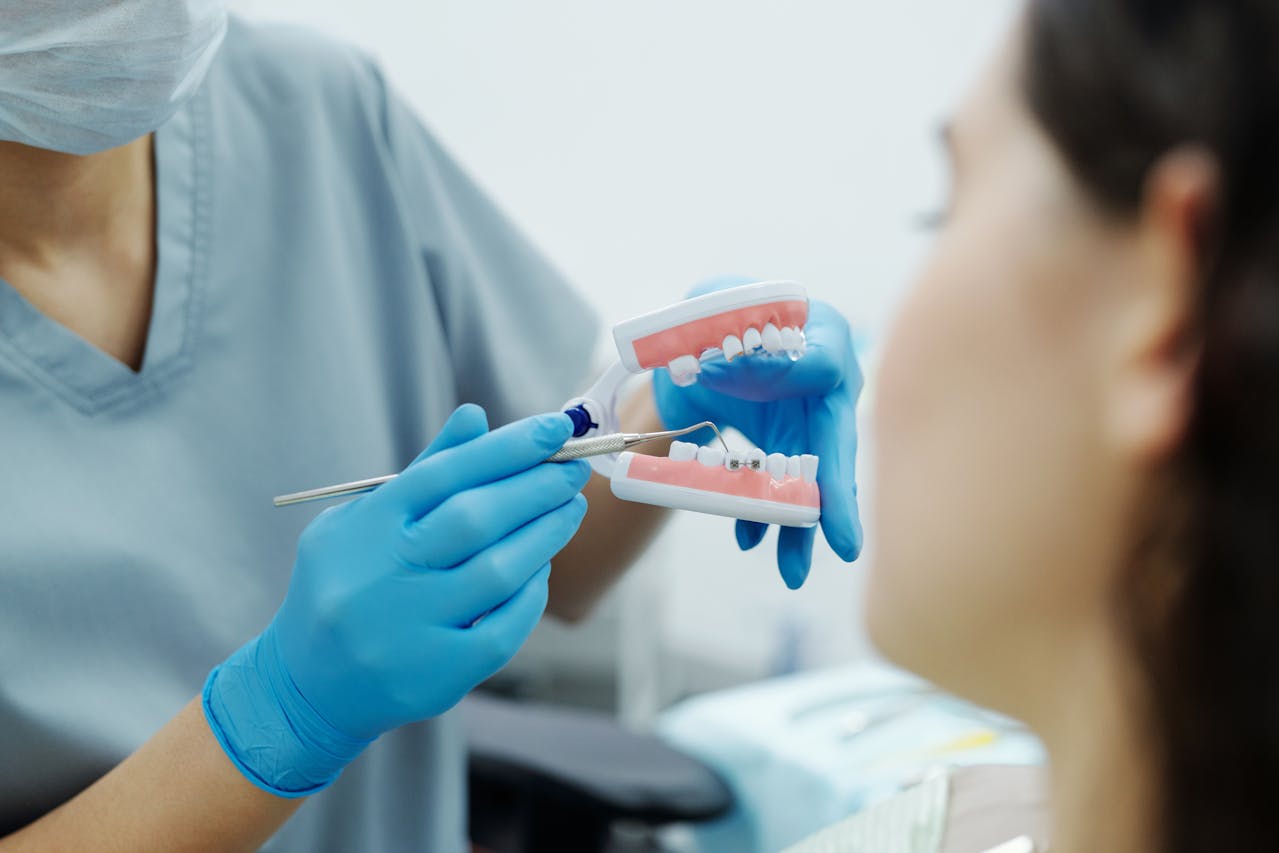Did you know that over 3.5 billion people suffer from oral diseases worldwide?
Many people assume that dental health is just about having a Hollywood smile, but the truth is far more serious. Neglecting your teeth and gum can lead to severe health complications, including heart disease, diabetes, and even cognitive decline.
If you’ve been putting off dental check-ups or brushing off that occasional toothache, it’s time to rethink your approach. This article will shed light on why oral health deserves your full attention and how taking small, consistent steps today can protect your smile and well-being for years to come.
What’s The Importance of Dental Health?
Your mouth is the gateway to your body. When your oral health deteriorates, it doesn’t just stay in your mouth, it affects your entire body. Good dental hygiene can help prevent infections, inflammation, and even systemic diseases.
Why Oral Health Matters More Than You Think?
- Prevents tooth decay and gum disease
- Reduces the risk of serious illnesses like heart disease and diabetes
- Boosts self-confidence and social interactions
- Saves money on expensive dental treatments in the long run
Ignoring your dental health today can lead to serious consequences down the road. Let’s explore exactly how poor oral hygiene impacts your overall well-being.
How Poor Oral Health Affects Your Overall Well-Being
Did you know that people with gum disease are twice as likely to suffer from heart disease? Bacteria from infected gums can enter the bloodstream, causing inflammation and increasing the risk of heart attacks and strokes.
-
Diabetes & Dental Health: A Two-Way Street
People with diabetes are more prone to gum infections, and in turn, gum disease can make diabetes harder to control by raising blood sugar levels. It’s a vicious cycle that highlights the importance of maintaining oral hygiene.
-
Oral Health and Brain Function: Unexpected Link to Alzheimer’s
Emerging research suggests that oral bacteria may contribute to Alzheimer’s disease. Bacteria from gum infections can travel to the brain, leading to inflammation and potential cognitive decline.

Ignoring your oral health isn’t just about losing teeth, it could put your heart, blood sugar levels, and even brain function at risk.
Warning Signs in Your Mouth You Should Never Ignore
-
Cavities: Tooth Decay
If left untreated, cavities can lead to:
- Painful infections
- Tooth loss
- Costly root canals or extractions
-
Gum Disease: Gingivitis & Periodontitis
The symptoms of gum disease include bleeding gums, bad breath, and receding gums. If untreated, it can lead to:
- Tooth and bone loss
- Increased risk of heart disease and stroke
-
Bad Breath Halitosis
Chronic bad breath is often a sign of deeper dental issues, such as cavities, gum disease, or bacterial infections.
Top 3 Practices for Maintaining Oral Health

1. Brush & Floss Daily: The Right Way!
- Brush twice a day for at least 2 minutes
- Use fluoride toothpaste to prevent cavities
- Floss daily to remove plaque between teeth
2. Choose the Right Diet for Healthy Teeth
- Avoid sugary foods and drinks (they fuel cavity-causing bacteria)
- Eat calcium-rich foods (like dairy and leafy greens) for strong teeth
- Stay hydrated to stimulate saliva production (which naturally cleanses your mouth)
3. Regular Dental Check-Ups: Prevention is Key
- Visit your dentist every 6 months for cleanings and exams
- Early detection of cavities and gum disease saves money and prevents pain
When Should You See a Dentist? 5 Signs You Shouldn’t Ignore
If you experience any of these symptoms, don’t delay a dental visit:
- Persistent tooth pain or sensitivity
- Bleeding gums or gum recession
- Chronic bad breath
- Loose or shifting teeth
- Mouth sores that don’t heal
Early intervention can prevent minor problems from becoming serious complications
Take Control of Your Dental Health Today!
Your dental health is a critical part of your overall well-being. By neglecting it, you risk not only your teeth and gums but also your confidence, finances, and even your life. Here’s a quick recap:
- Oral health is linked to heart disease, diabetes, and respiratory infections.
- Ignoring dental care can lead to cavities, gum disease, and tooth loss.
- Preventive care is affordable, effective, and essential for a healthy smile.
Ready to take the first step to a healthier, brighter smile?
At Al Safwa Medical Center, Abu Dhabi’s premier dental clinic, we offer over 30 professional dental services, from cosmetic dentistry to orthodontics, designed to meet your unique needs. With 10+ experts in various dental specialties, we’re committed to providing exceptional care for you and your family.
And experience the difference of premium dental care in UAE. Your smile deserves the best!
FAQs About Dental Health
- How often should I visit the dentist?
You should see a dentist at least twice a year for a check-up and professional cleaning.
- Can poor oral health really cause heart disease?
Yes! Studies show that gum disease is linked to an increased risk of heart attacks and strokes.
- What’s the best way to prevent cavities?
Brush twice a day, floss daily, limit sugar intake, and visit your dentist regularly.
- How do I get rid of bad breath permanently?
Maintain good oral hygiene, clean your tongue, drink plenty of water, and see a dentist if bad breath persists.
- Is bleeding gums normal?
No, bleeding gums are a sign of gum disease and should not be ignored.


